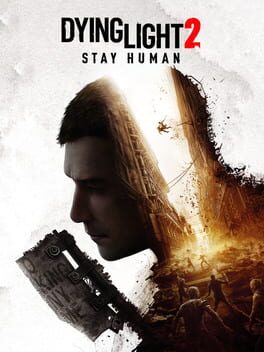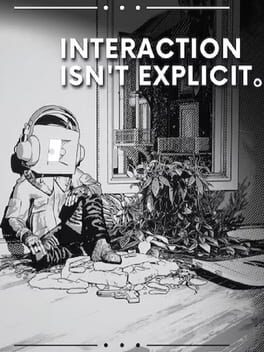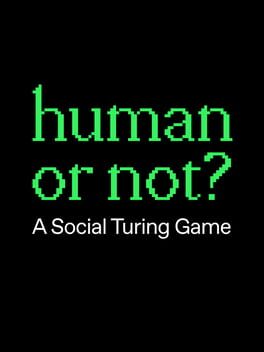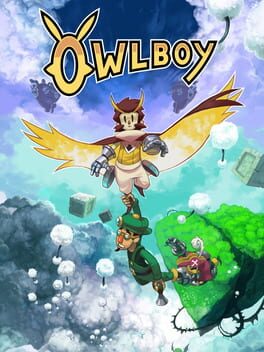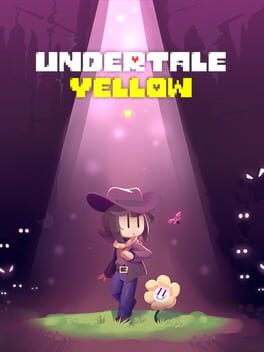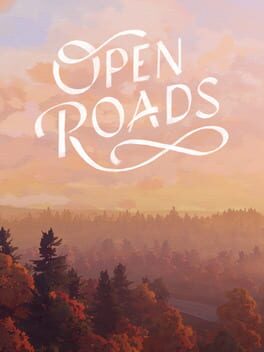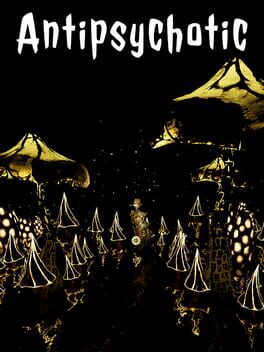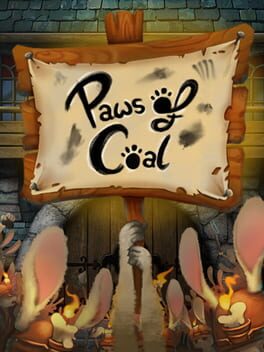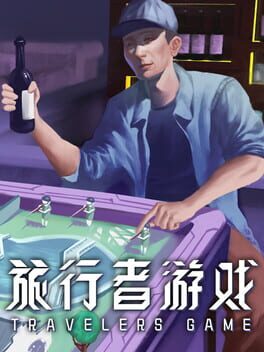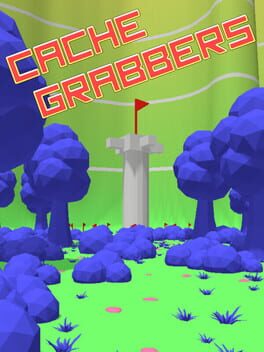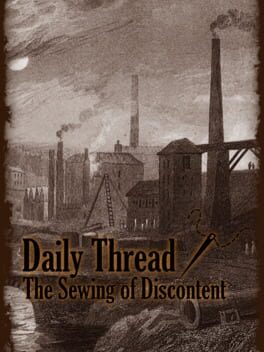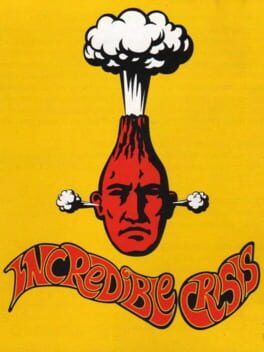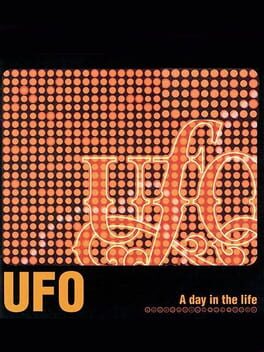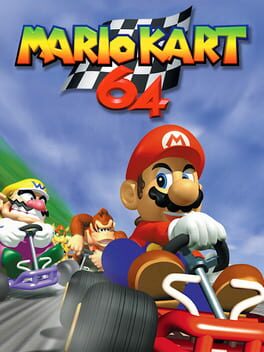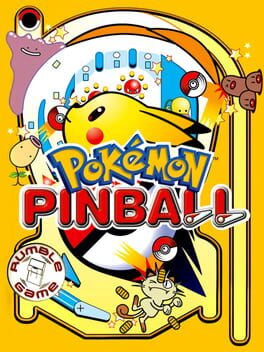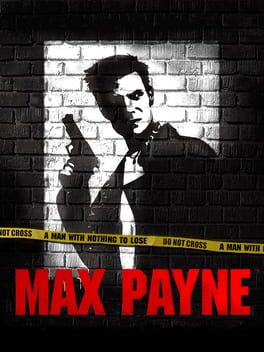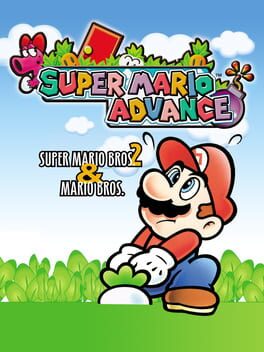aguamte622
28 reviews liked by aguamte622
After so long we finally were able to put our hands on continuation of really well received story about parkour and zombies surrounded by atmospheric Turkish post apocaliptic city. This story tho takes place few years later after new outbreak of the virus have turned the world upside down. Also climate changed, because now instead of not so typical country to chose to set game in we got typical, bland city of (probably) western europe.
Fighting with zombies and parkour both practicly not touched and good - the first one was standing well on technical side of the project and it was good decision to stay that way. Both parkour feels smooth and natural, and fight still is simple, bloody and hella satisying altho maybe too easy very fast after discovering the loot in the city.
Speak of the devil - the loot. Scattered in every one corner of the city, in the locations basicly copy-pasted with unlimited loot, randomly generated every fucking time. Activities that were killing the feeling of progress by how they weren't fading away after completion, repeated every single time was ruining the fun of clearing the map - so I gave up. Did some side quests, probably even most of them and I feel justified to say that they are booooooring. Even with every one of them backed with simple backstory they were lacking some depth and more interesting ideas to present.
Both side and main quests are filled with choices and unfortunetly most of them just doesn't matter and feel dull, even if they are important (which is really hard to miss) they are incredibly easy to predict what will happen in their outcome. The plot, as in the previous entry of the Dying Light duology, is really simple. And these choices are trying to make it feel even a little bit better. But it's just not enough to make it feel actually better than "alright".
If talking about some thing that were better than just "alright" we need to talk about something worse than "alright". And if said about mindless looting there is another elephant in the room - skill tree and equipment. Both very usefull at the beginning but after about 10 hours you come to realization that none of them are actually important in any way. Skills are useless and system of weapons and armor is very weak. It feels unnecessary. Very similiar case to the newer intries of Assassin's Creed franchise. Uncecessery changes that would need much more work than it was given to them.
And that's how it is with Dying Light - classical parts of the series are well preserved but was much less satisying because of live-service-bullshit.
Fighting with zombies and parkour both practicly not touched and good - the first one was standing well on technical side of the project and it was good decision to stay that way. Both parkour feels smooth and natural, and fight still is simple, bloody and hella satisying altho maybe too easy very fast after discovering the loot in the city.
Speak of the devil - the loot. Scattered in every one corner of the city, in the locations basicly copy-pasted with unlimited loot, randomly generated every fucking time. Activities that were killing the feeling of progress by how they weren't fading away after completion, repeated every single time was ruining the fun of clearing the map - so I gave up. Did some side quests, probably even most of them and I feel justified to say that they are booooooring. Even with every one of them backed with simple backstory they were lacking some depth and more interesting ideas to present.
Both side and main quests are filled with choices and unfortunetly most of them just doesn't matter and feel dull, even if they are important (which is really hard to miss) they are incredibly easy to predict what will happen in their outcome. The plot, as in the previous entry of the Dying Light duology, is really simple. And these choices are trying to make it feel even a little bit better. But it's just not enough to make it feel actually better than "alright".
If talking about some thing that were better than just "alright" we need to talk about something worse than "alright". And if said about mindless looting there is another elephant in the room - skill tree and equipment. Both very usefull at the beginning but after about 10 hours you come to realization that none of them are actually important in any way. Skills are useless and system of weapons and armor is very weak. It feels unnecessary. Very similiar case to the newer intries of Assassin's Creed franchise. Uncecessery changes that would need much more work than it was given to them.
And that's how it is with Dying Light - classical parts of the series are well preserved but was much less satisying because of live-service-bullshit.
Weird, self-righteous, self-indulgent bullshit. This game has the audacity to call itself an “essay” but doesn’t do anything except attempt to teach you some basic video game philosophies, which even then it does poorly.
On top of its holier-than-thou approach, the game making itself is done poorly. My game broke about 15 minutes into it; I couldn’t equip my gun anymore and I couldn’t pass a certain puzzle (which is a generous word to use) without it. Restarting the game or the checkpoint didn’t even fix it. I had to reset the entire thing and almost didn’t even want to waste the 15 minutes to do so.
Gameplay was boring and the design of it was trying too hard. I don’t like rating games this poorly but man this was a drag.
On top of its holier-than-thou approach, the game making itself is done poorly. My game broke about 15 minutes into it; I couldn’t equip my gun anymore and I couldn’t pass a certain puzzle (which is a generous word to use) without it. Restarting the game or the checkpoint didn’t even fix it. I had to reset the entire thing and almost didn’t even want to waste the 15 minutes to do so.
Gameplay was boring and the design of it was trying too hard. I don’t like rating games this poorly but man this was a drag.
Human or Not?
2023
So, I'll admit, I did, a couple nights ago as of writing this, briefly play Human or Not? despite knowing it was AI and, although I wasn't certain, I could guess it probably would contribute to teaching the AI, which by itself can lead to unsavory consequences. I should have known better and shouldn't have contributed. If it makes you feel better, it wasn't even fun and was overall underwhelming; whether it's a bot or a human, it was super easy to figure it out, it was incredibly easy to confuse the bot and make it not respond, leading to around 40 seconds of time wasted, and it's rare to find a fellow human. My score (if I were to give it one) would be negative anyway.
However, I recently found out that, as stated in their own Terms of Use page (that link is to a Twitter thread with a bit more information on the matter) that it is an Israel-based website, and they openly support Israel. On top of that, they share personal data collected from the website to third parties who can sell the data. I'll be honest, I don't really understand all the ins and outs of it, but I do know that I don't want my time playing a silly game in any way contributing to ongoing ethnic cleansing, inadvertently supporting the government directly responsible, and allowing them to share and sell my personal information.
Consider this a PSA to avoid this game and site. Do your clicks, support the people of Palestine, and FREE PALESTINE
However, I recently found out that, as stated in their own Terms of Use page (that link is to a Twitter thread with a bit more information on the matter) that it is an Israel-based website, and they openly support Israel. On top of that, they share personal data collected from the website to third parties who can sell the data. I'll be honest, I don't really understand all the ins and outs of it, but I do know that I don't want my time playing a silly game in any way contributing to ongoing ethnic cleansing, inadvertently supporting the government directly responsible, and allowing them to share and sell my personal information.
Consider this a PSA to avoid this game and site. Do your clicks, support the people of Palestine, and FREE PALESTINE
Owlboy
2016
every time a visually stunning indie game with a long-ass dev cycle has shitty combat and tons of flaws in general, an angel loses its wings.
this one took me years to finally get through, and for good reason. there's a lot here that just... doesn't feel fun. combat is pretty bad - even though owlboy's mechanics are fairly unique and fun to get acclimated to. you don't do enough damage, swapping between characters is clunky, sometimes aiming with the controller doesn't feel right, and every hit slams you against a wall and stops you from doing anything for several seconds. i think i got through every boss by face-tanking half the hits and just hoping i didn't die before it did.
there's also no map at all - which for a game like this is really bad. while the game itself is decently linear, you're put off from looking for any collectibles or secrets after you're done with that area out of fear of getting lost or just never finding something.
my least favorite part, however, were the stealth sections. personally, stealth sections are my least favorite gimmick in any game - they're slow, boring, and the stakes often don't matter so i just end up making a mad dash whenever i can. owlboy is filled with TONS of these - and each one is worse than the last. pirates will see you behind cover, the safe areas are few and far between, and don't even get me started on the bugs. NONE of these are executed well at all.
i kinda hate to tear into this game so much, because tbh it IS really beautiful - and despite all these downsides i don't hate it. it's got some of the best spritework of any game i've played, the music and worldbuilding are spectacular, and while i didn't get the best ending i loved the story regardless. the character designs are great too - your main cast is a ton of fun, and the NPCs and enemies have great designs as well. there's a ton to like in this game, but there's also a ton to dislike. give this one a try if you don't mind getting slammed against a wall every few seconds i guess.
this one took me years to finally get through, and for good reason. there's a lot here that just... doesn't feel fun. combat is pretty bad - even though owlboy's mechanics are fairly unique and fun to get acclimated to. you don't do enough damage, swapping between characters is clunky, sometimes aiming with the controller doesn't feel right, and every hit slams you against a wall and stops you from doing anything for several seconds. i think i got through every boss by face-tanking half the hits and just hoping i didn't die before it did.
there's also no map at all - which for a game like this is really bad. while the game itself is decently linear, you're put off from looking for any collectibles or secrets after you're done with that area out of fear of getting lost or just never finding something.
my least favorite part, however, were the stealth sections. personally, stealth sections are my least favorite gimmick in any game - they're slow, boring, and the stakes often don't matter so i just end up making a mad dash whenever i can. owlboy is filled with TONS of these - and each one is worse than the last. pirates will see you behind cover, the safe areas are few and far between, and don't even get me started on the bugs. NONE of these are executed well at all.
i kinda hate to tear into this game so much, because tbh it IS really beautiful - and despite all these downsides i don't hate it. it's got some of the best spritework of any game i've played, the music and worldbuilding are spectacular, and while i didn't get the best ending i loved the story regardless. the character designs are great too - your main cast is a ton of fun, and the NPCs and enemies have great designs as well. there's a ton to like in this game, but there's also a ton to dislike. give this one a try if you don't mind getting slammed against a wall every few seconds i guess.
Undertale Yellow
2023
They’ve got the sauce!
It’s not enough of the sauce, and it takes a little while before they actually start doling the sauce out, but by God, they’ve got the sauce! Undertale Yellow actually gets it, and what a triumph that is. It manages to avoid a lot of the pitfalls which plague fangames and have resulted in them getting such a broadly negative perception as being lesser forms of media, and it does so with an impressive amount of finesse. There are more than a couple of misfires here, and it can’t manage to be something that meets nor succeeds the original Undertale, but they’ve got the sauce. It’s a very big swing to take, and just about as big a hit.
What I appreciate most about Undertale Yellow is the sheer amount of restraint that the developers showcase. You only see Toriel for a grand total of about two minutes before she’s out of the game for good, and Mettaton, Alphys, and Asgore are mentioned a few times; apart from that, the only returning character who actually sticks around for most of the runtime is Flowey, and he acts differently enough that a large part of the narrative is trying to figure out what angle he’s playing at. There’s no Sans. He doesn’t even get namedropped! What? Can you imagine releasing an Undertale fangame and not bringing up Sans? When I got to the Snowdin Town bridge and released that Sans wasn’t going to show his face, I got pumped. It’s brave. A group far less confident in themselves would have just made this a second lap through the extant Underground, going on a little adventure to essentially experience Undertale all over again in a world where you could just play Undertale again if that was what you wanted to do.
The first impressions when the game starts branching off of Undertale aren’t especially strong. The first original NPC that you meet in the Ruins — Darv or Darm or Darl, whatever his name is — very much looks like someone’s Adventure Time self-insert that they drew to be Marceline the Vampire Queen’s boyfriend. Picture me retching as I type this. His character isn’t particularly good, mostly just muttering about some betrayal from long past and talking about how he wants to be left alone, and the game seems to agree with me in this respect; he drops off the face of the earth for the remainder of the runtime, only showing up again at the very end to make sure that the player hasn’t forgotten about him. The other new characters are significantly better: Martlet is a strong and obvious standout among the rest of the cast, North Star and his posse aren’t as consistent in their designs nor personalities but are still good, and Ceroba seems a lot like someone’s fursona but not in an especially bad way. I ended up liking more of the principle cast than I didn’t, so they’re definitely doing something right on the design and writing front.
The average enemy encounter is fine; there’s nothing especially interesting about most of them, though some do offer a couple of interesting gimmicks. Making the “floor slippery” so that the soul glides around or the music enemies blasting you with waveforms that you need to dodge are cute. Most of the boss fights don’t offer anything especially interesting, though. While Pacifist Ceroba does manage to get a few interesting gimmicks going in the form of giving the player the Big Shot, the overwhelming majority of the boss fights are just clicking Spare over and over and over again; your ACT commands often do nothing besides give the same line of flavor text every time you select them, which is a fairly boring way to handle these big encounters. I found the Guardener to be the best fight simply because it required you to hack away at vines blocking your options which then led into an ACT chain, giving you some freedom in the form of selecting which of your options you want to be available to you first. El Bailador is fine, turning the game into a rhythm section for a few minutes, but it doesn’t do much for me. So many of these fights are just about dodging bullets and slamming Mercy over and over again, and that’s never really been the draw of Undertale.
Similarly ranging from alright to forgettable are the music tracks. There’s nothing truly offensive here, and there are a couple that I like, but it's important for us to remember that Toby Fox was a composer long before he was a game designer. I can still hum the melodies to just about every track from Undertale, but I don’t think I could do the same for a single song from Undertale Yellow — at least, not from the ones that don’t lift one of Toby’s leitmotifs. While I do admire the developers’ willingness to get out from under the Undertale narrative trappings of returning characters walking in like sitcom guest stars for the audience to whoop and applaud to, I can’t extend the same praise to their composing. Ceroba’s fight plays a remix of Hopes and Dreams that the game absolutely hasn’t earned, and it took me right out of a battle that I was digging up until then. There are quite a few instances of obvious musical recycling in places where they don’t belong, and the songs that are wholly original don’t interest me much. They're far from anything terrible, but they feel a bit lazy in a game where there isn’t much else that does.
Undertale Yellow is ultimately a good fangame, and that is perhaps deserving of more celebration than anything else. It is very clearly made by a team of passionate and creative people, and I don’t think that their time spent on this would have been better spent on an original IP, instead. With that said, I would prefer for the next thing that this team releases to be something entirely of their own design; with all of the eyes that they’ve got on them now, I’m sure they’ve cultivated an audience that would be glad to see more.
And the sprites look too good. It’s all wrong. Part of the appeal of Undertale is that it looks like hot shit.
It’s not enough of the sauce, and it takes a little while before they actually start doling the sauce out, but by God, they’ve got the sauce! Undertale Yellow actually gets it, and what a triumph that is. It manages to avoid a lot of the pitfalls which plague fangames and have resulted in them getting such a broadly negative perception as being lesser forms of media, and it does so with an impressive amount of finesse. There are more than a couple of misfires here, and it can’t manage to be something that meets nor succeeds the original Undertale, but they’ve got the sauce. It’s a very big swing to take, and just about as big a hit.
What I appreciate most about Undertale Yellow is the sheer amount of restraint that the developers showcase. You only see Toriel for a grand total of about two minutes before she’s out of the game for good, and Mettaton, Alphys, and Asgore are mentioned a few times; apart from that, the only returning character who actually sticks around for most of the runtime is Flowey, and he acts differently enough that a large part of the narrative is trying to figure out what angle he’s playing at. There’s no Sans. He doesn’t even get namedropped! What? Can you imagine releasing an Undertale fangame and not bringing up Sans? When I got to the Snowdin Town bridge and released that Sans wasn’t going to show his face, I got pumped. It’s brave. A group far less confident in themselves would have just made this a second lap through the extant Underground, going on a little adventure to essentially experience Undertale all over again in a world where you could just play Undertale again if that was what you wanted to do.
The first impressions when the game starts branching off of Undertale aren’t especially strong. The first original NPC that you meet in the Ruins — Darv or Darm or Darl, whatever his name is — very much looks like someone’s Adventure Time self-insert that they drew to be Marceline the Vampire Queen’s boyfriend. Picture me retching as I type this. His character isn’t particularly good, mostly just muttering about some betrayal from long past and talking about how he wants to be left alone, and the game seems to agree with me in this respect; he drops off the face of the earth for the remainder of the runtime, only showing up again at the very end to make sure that the player hasn’t forgotten about him. The other new characters are significantly better: Martlet is a strong and obvious standout among the rest of the cast, North Star and his posse aren’t as consistent in their designs nor personalities but are still good, and Ceroba seems a lot like someone’s fursona but not in an especially bad way. I ended up liking more of the principle cast than I didn’t, so they’re definitely doing something right on the design and writing front.
The average enemy encounter is fine; there’s nothing especially interesting about most of them, though some do offer a couple of interesting gimmicks. Making the “floor slippery” so that the soul glides around or the music enemies blasting you with waveforms that you need to dodge are cute. Most of the boss fights don’t offer anything especially interesting, though. While Pacifist Ceroba does manage to get a few interesting gimmicks going in the form of giving the player the Big Shot, the overwhelming majority of the boss fights are just clicking Spare over and over and over again; your ACT commands often do nothing besides give the same line of flavor text every time you select them, which is a fairly boring way to handle these big encounters. I found the Guardener to be the best fight simply because it required you to hack away at vines blocking your options which then led into an ACT chain, giving you some freedom in the form of selecting which of your options you want to be available to you first. El Bailador is fine, turning the game into a rhythm section for a few minutes, but it doesn’t do much for me. So many of these fights are just about dodging bullets and slamming Mercy over and over again, and that’s never really been the draw of Undertale.
Similarly ranging from alright to forgettable are the music tracks. There’s nothing truly offensive here, and there are a couple that I like, but it's important for us to remember that Toby Fox was a composer long before he was a game designer. I can still hum the melodies to just about every track from Undertale, but I don’t think I could do the same for a single song from Undertale Yellow — at least, not from the ones that don’t lift one of Toby’s leitmotifs. While I do admire the developers’ willingness to get out from under the Undertale narrative trappings of returning characters walking in like sitcom guest stars for the audience to whoop and applaud to, I can’t extend the same praise to their composing. Ceroba’s fight plays a remix of Hopes and Dreams that the game absolutely hasn’t earned, and it took me right out of a battle that I was digging up until then. There are quite a few instances of obvious musical recycling in places where they don’t belong, and the songs that are wholly original don’t interest me much. They're far from anything terrible, but they feel a bit lazy in a game where there isn’t much else that does.
Undertale Yellow is ultimately a good fangame, and that is perhaps deserving of more celebration than anything else. It is very clearly made by a team of passionate and creative people, and I don’t think that their time spent on this would have been better spent on an original IP, instead. With that said, I would prefer for the next thing that this team releases to be something entirely of their own design; with all of the eyes that they’ve got on them now, I’m sure they’ve cultivated an audience that would be glad to see more.
And the sprites look too good. It’s all wrong. Part of the appeal of Undertale is that it looks like hot shit.
Open Roads
2024
Like watching a car crash.
Open Roads had a very rocky development, and it's not hard to tell. Announced about four years ago at The Game Awards and three years after the studio's then-latest release of Tacoma, Open Roads ran into some trouble when it came out that Steve Gaynor was a microtyrant who was forcing employees out of his company. In a true success story for the industry, he'd only been abusing his power over his subordinates to humiliate and demean them (specifically focusing his ire on the women at his company), and not to sexually harass them — please, hold your applause for the man until the end. The news broke that this dipshit and his stupid haircut had been responsible for turning over nearly the entire workforce of Fullbright over the course of just two years, and Gaynor stepped down ahead of the story coming out. He said he was very very sorry for his behavior and that he wouldn't do it again, but also that he wasn’t sorry enough to surrender the company name. Open Roads is now credited to "The Open Roads Team", comprised of the couple of employees who were left in the wake of his reign and whoever else they could bring on to save the project from a shallow grave. The game released just a few days ago to a remarkably small audience and a middling reception, and it isn't difficult to see why.
Open Roads fucking sucks.
It's a game that's very obsessed with detail, yet is remarkably uninterested in its story. When the game let me open up a trash can and pick out every single piece of garbage individually to examine it in a 3D model viewer, I got the feeling that I wasn't going to enjoy this. The models themselves are all very intricate and detailed, each one of them complete with their own bespoke labels, and fine print, and they're all very lovingly put together, and I absolutely would not have noticed nor cared about any of this if a core component of the game wasn't picking up random objects and looking at them. There's a reason that movies don't feature characters picking up every loose object on the set and holding them up to camera, and that's because it's not particularly interesting to do that. I feel like I have to explain this from first principles. What do we gain by doing this? What do we gain from having the player pick up loose items and stare at them? What does that accomplish that just dressing the set with static objects wouldn't? It certainly makes the game last longer, because you need to pick up every piece of random bullshit in the hopes of finding the ones that advance you to the next section, but there's no appeal in doing that. It's busywork. So little worldbuilding actually happens by digging through these items; you'll be picking through erasers and pencils and plates, all such boring, domestic objects that don't have any character to them whatsoever. You can pick up some push pins and look at them. They're normal fucking push pins. You can pick up a fork and look at it. It's a normal fucking fork. You can pick up a comb and look at it. It's a normal fucking comb. What are we doing? Why? Is there something about allowing me to pick these objects up and look at them that does anything that leaving them in the scenery for me to look at wouldn't? Could we at least do something interesting with them? Express some personality through them? Give us a reason to investigate them? Anything, so long as it could give this a point.
Tonally, this is all over the place. Tess being kind of mood swing-y makes sense — she's fifteen, and nobody seems keen on telling her fucking anything on the grounds of it being "too complicated", despite one of the core conflicts of the game being completely resolved in a literal three minute talk at the end — but Opal falls into this pattern as well. Tess will go way, way too far in making an accusation or just trying to come up with something that would hurt her mom, and Opal will respond in kind, and then the pair of them will act like nothing ever happened. One sequence has them blow up on one another, refuse to say another word until the end of the car ride, and then resume quipping and bantering not even thirty seconds later. It takes more time for you to eat the fucking burger that Opal buys you at the motel than it does for the only two principle characters in this story to have a ground-shattering fight and then completely resolve it. The store description boasts that Tess and Opal’s relationship has “never been easy” when it so obviously is. If I had said so much as a fraction of the shit Tess says to my own mom, I would have demolished our relationship. Instead, it’s all glossed over, all just Buffyspeak for the pile. If wry quips were currency, Tess and Opal wouldn't have to sell the house.
The game can't ever decide whether it's time to floor it or slam the brakes, and instead has you constantly whipping back and forth between long segments of doing fucking nothing besides wandering around to rotate ashtrays and then blasting forward with story development that you barely even have time to register as happening before it's over. Your grandfather died, but he wasn't actually your grandfather, but he was a jewel thief, but he was your grandfather, but he might still be alive, but he tried to turn himself in, but who cares, but maybe your professional gambler father can enlighten you, but roll credits. Christ. We spend 90% of the runtime walking around and investigating literal fucking garbage and then cram way too much of this incredibly boring story into not enough time to tell it. This isn't even an Open Roads problem, but Open Roads is a symptom; so many games have fucking atrocious pacing. I've started celebrating anything that can get to credits without rushing or dragging. At least this has the decency to be over in an hour and a half, despite the fact that it does nothing with that time.
Would you believe me if I told you that this controlled badly? For a game this simple, just about every control scheme has something completely broken about it. If you're playing on a gamepad (the optimal way to play), menus are often incredibly sticky and require a few button presses before they actually register that you want to move your cursor up or down. Getting from New Game to Continue on the main menu took four down presses to move the selection box down once. Objects that you can interact with are what I can only describe as "sticky"; moving your reticle near them will drastically decrease your sensitivity and pull your view towards the item like a magnet, ensuring that you can easily pick up the item without having to fiddle with getting the reticle placement just right. This, in theory, is a great idea. In practice, the fact that so many fucking items in the game can be interacted with means that your view is constantly being dragged around, making it feel like you're fighting with the controls when you're trying to look up from a desk to the exit door. You can't move your camera freely unless you're staring off into empty space, because your reticle keeps getting caught on objects and making it incredibly difficult for you to look away from them. It should not be this frustrating simply trying to look around a room.
Doing this on a mouse is where the fun really begins, though. I don't know what happened with my copy of the game, because I can't imagine that this happened to anyone else and they didn't see fit to mention it; it's obviously a bug, but it's also really funny that it made to the final release. Mouselook, for some ungodly reason, is locked to eight directions. It also "snaps" when you move it around, jumping from one point to another rather than smoothly gliding between them. I thought it had something to do with the controller being plugged in, but it persisted through both unplugging the gamepad and restarting the PC. I can't really explain how bad this is through text, so I've graciously provided you with a video so that you won't have to experience it for yourself. Nobody should know these horrors, but I do. You should not be made to carry this burden.
I feel bad giving it this low of a score, because I usually prefer to reserve the half-stars for works that are actively harmful. The kind of thing that does damage. But there is absolutely nothing that I like here. I detest the writing, I detest playing it, I detest the way that it looks, I can't fucking stand it. This game radiates a horrid energy that enters me in waves and saps my will. The writers have almost never worked on anything else in their lives and one of the lead art directors made Dream Daddy. We're not dealing with heavy hitters of the industry, here. These are people who are uniquely underqualified coming in to try and salvage an extant work tainted by employee abuse because throwing out the name and starting over would be bad for brand recognition.
Despite the fact that this is intended as something of a follow-up to Gone Home, there's almost nobody left from that project who's still working on this one. This isn't a successor project so much as it is an imitation, all of the gaps smoothed over with drywall mud from Annapurna helping to pull in nearly three hundred fucking contractors to get this out. What compelled them to go ahead with releasing this? Open Roads is the ship of Theseus. Clearly everybody who knew what they were doing when they were still under the Fullbright banner is gone with no intention of coming back, and the ones with a clue who survived Gaynor's reign don't have enough of a voice under the fucking mountain of outside artists and developers being brought in to push this out the door.
Open Roads is a game that clearly has talented people on board, but is helmed by a team lead (or leads, plural) who have no clue what do to with them. There’s so much wasted potential here. It sucks to see all of these people wriggle out from under the thumb of an abusive manager just to immediately be put beneath the thumb of a new manager who’s incompetent, instead. I can’t write here what I hope happens to Steve Gaynor. I do hope that whoever’s left from Fullbright can leave Annapurna behind and make something better than their oldest work, because I know they’re capable of it. They just need a leader who isn’t a fucking moron.
Hey, mom!
Open Roads had a very rocky development, and it's not hard to tell. Announced about four years ago at The Game Awards and three years after the studio's then-latest release of Tacoma, Open Roads ran into some trouble when it came out that Steve Gaynor was a microtyrant who was forcing employees out of his company. In a true success story for the industry, he'd only been abusing his power over his subordinates to humiliate and demean them (specifically focusing his ire on the women at his company), and not to sexually harass them — please, hold your applause for the man until the end. The news broke that this dipshit and his stupid haircut had been responsible for turning over nearly the entire workforce of Fullbright over the course of just two years, and Gaynor stepped down ahead of the story coming out. He said he was very very sorry for his behavior and that he wouldn't do it again, but also that he wasn’t sorry enough to surrender the company name. Open Roads is now credited to "The Open Roads Team", comprised of the couple of employees who were left in the wake of his reign and whoever else they could bring on to save the project from a shallow grave. The game released just a few days ago to a remarkably small audience and a middling reception, and it isn't difficult to see why.
Open Roads fucking sucks.
It's a game that's very obsessed with detail, yet is remarkably uninterested in its story. When the game let me open up a trash can and pick out every single piece of garbage individually to examine it in a 3D model viewer, I got the feeling that I wasn't going to enjoy this. The models themselves are all very intricate and detailed, each one of them complete with their own bespoke labels, and fine print, and they're all very lovingly put together, and I absolutely would not have noticed nor cared about any of this if a core component of the game wasn't picking up random objects and looking at them. There's a reason that movies don't feature characters picking up every loose object on the set and holding them up to camera, and that's because it's not particularly interesting to do that. I feel like I have to explain this from first principles. What do we gain by doing this? What do we gain from having the player pick up loose items and stare at them? What does that accomplish that just dressing the set with static objects wouldn't? It certainly makes the game last longer, because you need to pick up every piece of random bullshit in the hopes of finding the ones that advance you to the next section, but there's no appeal in doing that. It's busywork. So little worldbuilding actually happens by digging through these items; you'll be picking through erasers and pencils and plates, all such boring, domestic objects that don't have any character to them whatsoever. You can pick up some push pins and look at them. They're normal fucking push pins. You can pick up a fork and look at it. It's a normal fucking fork. You can pick up a comb and look at it. It's a normal fucking comb. What are we doing? Why? Is there something about allowing me to pick these objects up and look at them that does anything that leaving them in the scenery for me to look at wouldn't? Could we at least do something interesting with them? Express some personality through them? Give us a reason to investigate them? Anything, so long as it could give this a point.
Tonally, this is all over the place. Tess being kind of mood swing-y makes sense — she's fifteen, and nobody seems keen on telling her fucking anything on the grounds of it being "too complicated", despite one of the core conflicts of the game being completely resolved in a literal three minute talk at the end — but Opal falls into this pattern as well. Tess will go way, way too far in making an accusation or just trying to come up with something that would hurt her mom, and Opal will respond in kind, and then the pair of them will act like nothing ever happened. One sequence has them blow up on one another, refuse to say another word until the end of the car ride, and then resume quipping and bantering not even thirty seconds later. It takes more time for you to eat the fucking burger that Opal buys you at the motel than it does for the only two principle characters in this story to have a ground-shattering fight and then completely resolve it. The store description boasts that Tess and Opal’s relationship has “never been easy” when it so obviously is. If I had said so much as a fraction of the shit Tess says to my own mom, I would have demolished our relationship. Instead, it’s all glossed over, all just Buffyspeak for the pile. If wry quips were currency, Tess and Opal wouldn't have to sell the house.
The game can't ever decide whether it's time to floor it or slam the brakes, and instead has you constantly whipping back and forth between long segments of doing fucking nothing besides wandering around to rotate ashtrays and then blasting forward with story development that you barely even have time to register as happening before it's over. Your grandfather died, but he wasn't actually your grandfather, but he was a jewel thief, but he was your grandfather, but he might still be alive, but he tried to turn himself in, but who cares, but maybe your professional gambler father can enlighten you, but roll credits. Christ. We spend 90% of the runtime walking around and investigating literal fucking garbage and then cram way too much of this incredibly boring story into not enough time to tell it. This isn't even an Open Roads problem, but Open Roads is a symptom; so many games have fucking atrocious pacing. I've started celebrating anything that can get to credits without rushing or dragging. At least this has the decency to be over in an hour and a half, despite the fact that it does nothing with that time.
Would you believe me if I told you that this controlled badly? For a game this simple, just about every control scheme has something completely broken about it. If you're playing on a gamepad (the optimal way to play), menus are often incredibly sticky and require a few button presses before they actually register that you want to move your cursor up or down. Getting from New Game to Continue on the main menu took four down presses to move the selection box down once. Objects that you can interact with are what I can only describe as "sticky"; moving your reticle near them will drastically decrease your sensitivity and pull your view towards the item like a magnet, ensuring that you can easily pick up the item without having to fiddle with getting the reticle placement just right. This, in theory, is a great idea. In practice, the fact that so many fucking items in the game can be interacted with means that your view is constantly being dragged around, making it feel like you're fighting with the controls when you're trying to look up from a desk to the exit door. You can't move your camera freely unless you're staring off into empty space, because your reticle keeps getting caught on objects and making it incredibly difficult for you to look away from them. It should not be this frustrating simply trying to look around a room.
Doing this on a mouse is where the fun really begins, though. I don't know what happened with my copy of the game, because I can't imagine that this happened to anyone else and they didn't see fit to mention it; it's obviously a bug, but it's also really funny that it made to the final release. Mouselook, for some ungodly reason, is locked to eight directions. It also "snaps" when you move it around, jumping from one point to another rather than smoothly gliding between them. I thought it had something to do with the controller being plugged in, but it persisted through both unplugging the gamepad and restarting the PC. I can't really explain how bad this is through text, so I've graciously provided you with a video so that you won't have to experience it for yourself. Nobody should know these horrors, but I do. You should not be made to carry this burden.
I feel bad giving it this low of a score, because I usually prefer to reserve the half-stars for works that are actively harmful. The kind of thing that does damage. But there is absolutely nothing that I like here. I detest the writing, I detest playing it, I detest the way that it looks, I can't fucking stand it. This game radiates a horrid energy that enters me in waves and saps my will. The writers have almost never worked on anything else in their lives and one of the lead art directors made Dream Daddy. We're not dealing with heavy hitters of the industry, here. These are people who are uniquely underqualified coming in to try and salvage an extant work tainted by employee abuse because throwing out the name and starting over would be bad for brand recognition.
Despite the fact that this is intended as something of a follow-up to Gone Home, there's almost nobody left from that project who's still working on this one. This isn't a successor project so much as it is an imitation, all of the gaps smoothed over with drywall mud from Annapurna helping to pull in nearly three hundred fucking contractors to get this out. What compelled them to go ahead with releasing this? Open Roads is the ship of Theseus. Clearly everybody who knew what they were doing when they were still under the Fullbright banner is gone with no intention of coming back, and the ones with a clue who survived Gaynor's reign don't have enough of a voice under the fucking mountain of outside artists and developers being brought in to push this out the door.
Open Roads is a game that clearly has talented people on board, but is helmed by a team lead (or leads, plural) who have no clue what do to with them. There’s so much wasted potential here. It sucks to see all of these people wriggle out from under the thumb of an abusive manager just to immediately be put beneath the thumb of a new manager who’s incompetent, instead. I can’t write here what I hope happens to Steve Gaynor. I do hope that whoever’s left from Fullbright can leave Annapurna behind and make something better than their oldest work, because I know they’re capable of it. They just need a leader who isn’t a fucking moron.
Hey, mom!
It’s not peak fiction, but you can see it from here.
Yakuza: Like A Dragon — referred to as Yakuza 7 from here on — was pitched to me by a couple of friends as one of the greatest games ever made. That’s a tough sell, largely because I’m a miserable dickhead who seriously (don’t laugh!) writes about video games. Putting forth anything as being one of the best is a fucking gamble, because you’re not playing with good odds. There are a lot of works out there, and only a couple get to be the best. It tends to make it hurt worse when, almost inevitably, it’s not actually one of the best; you get your hopes up, and then the work doesn’t live up to the inflated goals you set for it, and then you’re left feeling disappointed.
Luckily, though, that’s not the case here. I don’t think Yakuza 7 is as good as I was told it was, but it’s certainly still pretty good. Great, even! There are some pacing and writing issues that drag it down, but what’s here is legitimately impressive. I don’t really care for RPGs as a genre, and I especially don’t care for games that ask for thirty to forty hours of my time, so the fact that this is still scoring as high as it is may as well be a sign of the end times. The four horsemen are a yakuza, an ex-nurse, an office worker, and a triad boss.
It’s immensely funny that, in an era where the largest development studios are playing it as safe as they possibly can, RGG Studios decided that Yakuza is no longer an action game. It’s such a ridiculous fucking idea. Some positive reception to an April Fool’s joke was all they needed to go all-in on this? What the fuck? You aren’t supposed to make games like this. And yet, they did; and yet, it works. It works really well, actually. There’s a bit of a problem that AoE skills are absurdly good compared to their single-target little brothers; obviously the single-target skills are king in boss fights, but those are pretty far and few between. Autobattling still takes a while and uses up precious items, and low-level mooks don't run away even when you've got a massive numbers advantage over them; most of the street fights are little more than time wasters, ultimately. Expect to spend the majority of the endgame running away from random encounters simply because they don't pay out in resources more than they take.
Ichiban is a wonderful character, and it's frankly no surprise that many people have latched onto him as hard as they have. Most of the cast is strong, really. I certainly wasn't expecting this to handle social issues as well as it did. It's more than a little hamfisted at times — discussions about "gray zones" and "bleaching white" tend to lean on wordplay a bit too heavily — but it's a pretty solid takedown of blind idealism. Bleach Japan's goals sound, from the outset, to be pretty reasonable. It's only once you dig in and find out what they're actually working towards that it becomes apparent that they're interested solely in enforcing laws, not in ensuring that people benefit from the law. Sure, women being forced to turn to sex work is bad. Homeless people not being able to find a safe spot to sleep is bad. Yakuza gangsters shouldn't be running the streets. The solution, though, is not to deport them, arrest them, and incite a gang war in the hopes they all kill themselves off, respectively. The gray zones are astronomically far from perfect, but blindly adhering to already-oppressive laws serves only to worsen the problem. It's rare to find a work with a positive view on criminal activity that isn't individualistic "fuck-you-I-do-what-I-want" id slop, but rather calls into question the legitimacy of the laws being broken.
I do have a problem with the writing in that it feels mean, sometimes. It happens often enough to be noticeable, and it clashes hard with a lot of what's written elsewhere. Nanba, for example, never really stops being a "homeless guy", even after he manages to get two(!!!) different houses that he stays in. The game just keeps reminding you how bad he smells, because he's homeless: he can debuff enemies because he stinks; he can breathe fire because his breath is just that potent; he can revive allies because none of them want him to give them CPR. It's weird. I don't really feel a sense of malice here, because the game is otherwise pretty fair to homeless people — certainly more than most, as low of a bar as that is. It's more like the game needs a smack upside the head and for someone to tell it that it's not being funny. I feel like it'd smarten up pretty quick.
Yakuza 7 has a bit of a habit. It’s definitely not a good habit, but I’m a little hesitant to call it a bad habit. Yakuza 7 just really loves killing off characters. Whenever a character’s arc comes to a close, they just get merked. The Geomijul goon who shakes down the bar owners? Shot to death. Arakawa? Shot to death. Hoshino? Shot to death. Ogasawara? Probably shot to death. Characters just start dropping like flies the second that they’ve served their narrative purpose. I guess I can understand it, considering that this is ultimately a game about organized crime — nobody walks away from Goodfellas wondering what was up with all of the indiscriminate murder — but it makes it a little difficult to stomach the feel-good ending that follows in the wake of such a bloodbath. Yakuza as a franchise is kind of renowned for being over the top, so this might just be a case of me going to a steakhouse and complaining that they don’t have enough vegetarian options, but I think there’s a bit too much melo in this melodrama.
Where it really came to a head for me was in the final stretch of cutscenes — as good a place as any for it to come to a head, I suppose. After going through a lengthy boss sequence, and then a second boss sequence, and then a third boss sequence, Ichiban finally manages to corner his young master. Masato pulls a gun, points it at Ichiban, and then points it at himself; his life as he knows it is over, and all of his hard work has been pulled out from under him, and he sees no reason to go on. Ichiban, who’s spent the entire game desperately trying to make this fucking stupid asshole see the light, breaks down in tears. He tells Masato that he would have done anything for him, that Masato needs to start over, that he believes Masato can turn a new leaf and be a better person. He caps it off with the line “please don’t make me watch my brother die”, which is so insanely good that I’m getting choked up again writing it out. It’s a phenomenal sequence. It’s written really well, it’s paced really well, and it works. It works better than any single moment in the preceding thirty hours.
Masato then gets stabbed by a lackey and bleeds out. Ichiban punctuates the moment with a slow-motion “NOOOOOOOOOOO!”. I roll my eyes because the game is now being stupid. Take it down a notch. You had something really good going, with the whole “choosing to be a better person after spending twenty years fucking up” angle. You don’t need to spoil it by going full soap opera, pretending like you’re gonna kill off the character after all of that. Just roll these obviously fake credits, and show us the scene where Masato is out of the hospital, and — oh, no, you actually killed him off. Jesus. Really? What a waste. I can’t really articulate why this complete bloodbath bothers me so much if not for the fact that it all feels at odds with the fact that this is supposed to be a happy ending. I guess when you’ve got a franchise that’s been running for this long without the universe being reset, it does you well to just kill off as many named characters as you can; people who play the next game won’t be asking where the old characters are if they know that they’re all turning into compost.
A severe difficulty spike right near the end also necessitates a good dose of grinding to get to a point where you can (un)comfortably clear it, which doesn't help the pacing much. You're more-or-less forced to complete the battle arena at least once, and then subsequently forced into the Kamurocho sewers to farm Invested Vagabonds. It's certainly not as egregious as some other RPGs when it comes to how much grinding you're expected to do, but it's still a hefty ask for a game that's already about thirty hours when you're going straight down the critical path. Add in the obscene amount of substories and minigames — some of which are great, some of which very much aren't — and this is a long game. I was definitely starting to lose patience with it by the end.
It's not perfect, but it's not far from it. There's a lot here to love. I think if this had ended somewhere around the halfway point, I wouldn't have a single bad thing to say. The first ten or so hours of Yakuza 7 are masterful, and the remaining minimum twenty are only pretty solid. It's easy to be a lot worse than this.
Don't piss me off. I'm close to leveling up and you look like just enough XP.
Yakuza: Like A Dragon — referred to as Yakuza 7 from here on — was pitched to me by a couple of friends as one of the greatest games ever made. That’s a tough sell, largely because I’m a miserable dickhead who seriously (don’t laugh!) writes about video games. Putting forth anything as being one of the best is a fucking gamble, because you’re not playing with good odds. There are a lot of works out there, and only a couple get to be the best. It tends to make it hurt worse when, almost inevitably, it’s not actually one of the best; you get your hopes up, and then the work doesn’t live up to the inflated goals you set for it, and then you’re left feeling disappointed.
Luckily, though, that’s not the case here. I don’t think Yakuza 7 is as good as I was told it was, but it’s certainly still pretty good. Great, even! There are some pacing and writing issues that drag it down, but what’s here is legitimately impressive. I don’t really care for RPGs as a genre, and I especially don’t care for games that ask for thirty to forty hours of my time, so the fact that this is still scoring as high as it is may as well be a sign of the end times. The four horsemen are a yakuza, an ex-nurse, an office worker, and a triad boss.
It’s immensely funny that, in an era where the largest development studios are playing it as safe as they possibly can, RGG Studios decided that Yakuza is no longer an action game. It’s such a ridiculous fucking idea. Some positive reception to an April Fool’s joke was all they needed to go all-in on this? What the fuck? You aren’t supposed to make games like this. And yet, they did; and yet, it works. It works really well, actually. There’s a bit of a problem that AoE skills are absurdly good compared to their single-target little brothers; obviously the single-target skills are king in boss fights, but those are pretty far and few between. Autobattling still takes a while and uses up precious items, and low-level mooks don't run away even when you've got a massive numbers advantage over them; most of the street fights are little more than time wasters, ultimately. Expect to spend the majority of the endgame running away from random encounters simply because they don't pay out in resources more than they take.
Ichiban is a wonderful character, and it's frankly no surprise that many people have latched onto him as hard as they have. Most of the cast is strong, really. I certainly wasn't expecting this to handle social issues as well as it did. It's more than a little hamfisted at times — discussions about "gray zones" and "bleaching white" tend to lean on wordplay a bit too heavily — but it's a pretty solid takedown of blind idealism. Bleach Japan's goals sound, from the outset, to be pretty reasonable. It's only once you dig in and find out what they're actually working towards that it becomes apparent that they're interested solely in enforcing laws, not in ensuring that people benefit from the law. Sure, women being forced to turn to sex work is bad. Homeless people not being able to find a safe spot to sleep is bad. Yakuza gangsters shouldn't be running the streets. The solution, though, is not to deport them, arrest them, and incite a gang war in the hopes they all kill themselves off, respectively. The gray zones are astronomically far from perfect, but blindly adhering to already-oppressive laws serves only to worsen the problem. It's rare to find a work with a positive view on criminal activity that isn't individualistic "fuck-you-I-do-what-I-want" id slop, but rather calls into question the legitimacy of the laws being broken.
I do have a problem with the writing in that it feels mean, sometimes. It happens often enough to be noticeable, and it clashes hard with a lot of what's written elsewhere. Nanba, for example, never really stops being a "homeless guy", even after he manages to get two(!!!) different houses that he stays in. The game just keeps reminding you how bad he smells, because he's homeless: he can debuff enemies because he stinks; he can breathe fire because his breath is just that potent; he can revive allies because none of them want him to give them CPR. It's weird. I don't really feel a sense of malice here, because the game is otherwise pretty fair to homeless people — certainly more than most, as low of a bar as that is. It's more like the game needs a smack upside the head and for someone to tell it that it's not being funny. I feel like it'd smarten up pretty quick.
Yakuza 7 has a bit of a habit. It’s definitely not a good habit, but I’m a little hesitant to call it a bad habit. Yakuza 7 just really loves killing off characters. Whenever a character’s arc comes to a close, they just get merked. The Geomijul goon who shakes down the bar owners? Shot to death. Arakawa? Shot to death. Hoshino? Shot to death. Ogasawara? Probably shot to death. Characters just start dropping like flies the second that they’ve served their narrative purpose. I guess I can understand it, considering that this is ultimately a game about organized crime — nobody walks away from Goodfellas wondering what was up with all of the indiscriminate murder — but it makes it a little difficult to stomach the feel-good ending that follows in the wake of such a bloodbath. Yakuza as a franchise is kind of renowned for being over the top, so this might just be a case of me going to a steakhouse and complaining that they don’t have enough vegetarian options, but I think there’s a bit too much melo in this melodrama.
Where it really came to a head for me was in the final stretch of cutscenes — as good a place as any for it to come to a head, I suppose. After going through a lengthy boss sequence, and then a second boss sequence, and then a third boss sequence, Ichiban finally manages to corner his young master. Masato pulls a gun, points it at Ichiban, and then points it at himself; his life as he knows it is over, and all of his hard work has been pulled out from under him, and he sees no reason to go on. Ichiban, who’s spent the entire game desperately trying to make this fucking stupid asshole see the light, breaks down in tears. He tells Masato that he would have done anything for him, that Masato needs to start over, that he believes Masato can turn a new leaf and be a better person. He caps it off with the line “please don’t make me watch my brother die”, which is so insanely good that I’m getting choked up again writing it out. It’s a phenomenal sequence. It’s written really well, it’s paced really well, and it works. It works better than any single moment in the preceding thirty hours.
Masato then gets stabbed by a lackey and bleeds out. Ichiban punctuates the moment with a slow-motion “NOOOOOOOOOOO!”. I roll my eyes because the game is now being stupid. Take it down a notch. You had something really good going, with the whole “choosing to be a better person after spending twenty years fucking up” angle. You don’t need to spoil it by going full soap opera, pretending like you’re gonna kill off the character after all of that. Just roll these obviously fake credits, and show us the scene where Masato is out of the hospital, and — oh, no, you actually killed him off. Jesus. Really? What a waste. I can’t really articulate why this complete bloodbath bothers me so much if not for the fact that it all feels at odds with the fact that this is supposed to be a happy ending. I guess when you’ve got a franchise that’s been running for this long without the universe being reset, it does you well to just kill off as many named characters as you can; people who play the next game won’t be asking where the old characters are if they know that they’re all turning into compost.
A severe difficulty spike right near the end also necessitates a good dose of grinding to get to a point where you can (un)comfortably clear it, which doesn't help the pacing much. You're more-or-less forced to complete the battle arena at least once, and then subsequently forced into the Kamurocho sewers to farm Invested Vagabonds. It's certainly not as egregious as some other RPGs when it comes to how much grinding you're expected to do, but it's still a hefty ask for a game that's already about thirty hours when you're going straight down the critical path. Add in the obscene amount of substories and minigames — some of which are great, some of which very much aren't — and this is a long game. I was definitely starting to lose patience with it by the end.
It's not perfect, but it's not far from it. There's a lot here to love. I think if this had ended somewhere around the halfway point, I wouldn't have a single bad thing to say. The first ten or so hours of Yakuza 7 are masterful, and the remaining minimum twenty are only pretty solid. It's easy to be a lot worse than this.
Don't piss me off. I'm close to leveling up and you look like just enough XP.
Undertale Yellow
2023
Undertale Yellow
2023
This game spends a lot of time meandering in a way that Undertale probably also does, but without Toby Fox's writing and Compositions. Trying to emulate those facets of Toby Fox's work may just not be possible and I really started to feel the weight of the constant text and repetitive enemies. Characters don't really gain any attachment early on so it really doesn't feel all that interesting for a while. Luckily I felt the story picks up by the end and it left a good final impression. I got the Pacifist ending and I think it slotted in next to the story of Undertale (uh oh) nicely.
There are some character designs that aren't bad but feel out of place to me. I don't think they're super far fetched but their presence in combination with the fact that it's a fan game makes it more noticeable. I hope some others will understand what I mean.
I'll likely try some extra endings.
Update: Did all endings. Genocide final boss was borderline impossible before the 1.1 patch so I had to update specifically for it. I had to manipulate my save because there's a point in the last area of genocide where if you cross into a room you can no longer kill everything. Really lame.
Non-pacifist routes didn't really change my opinion of the game overall. The Flowey fight was interesting but wasn't as cool as Omega Flowey, but to be fair it shouldn't be.
There are some character designs that aren't bad but feel out of place to me. I don't think they're super far fetched but their presence in combination with the fact that it's a fan game makes it more noticeable. I hope some others will understand what I mean.
I'll likely try some extra endings.
Update: Did all endings. Genocide final boss was borderline impossible before the 1.1 patch so I had to update specifically for it. I had to manipulate my save because there's a point in the last area of genocide where if you cross into a room you can no longer kill everything. Really lame.
Non-pacifist routes didn't really change my opinion of the game overall. The Flowey fight was interesting but wasn't as cool as Omega Flowey, but to be fair it shouldn't be.
3 lists liked by aguamte622
